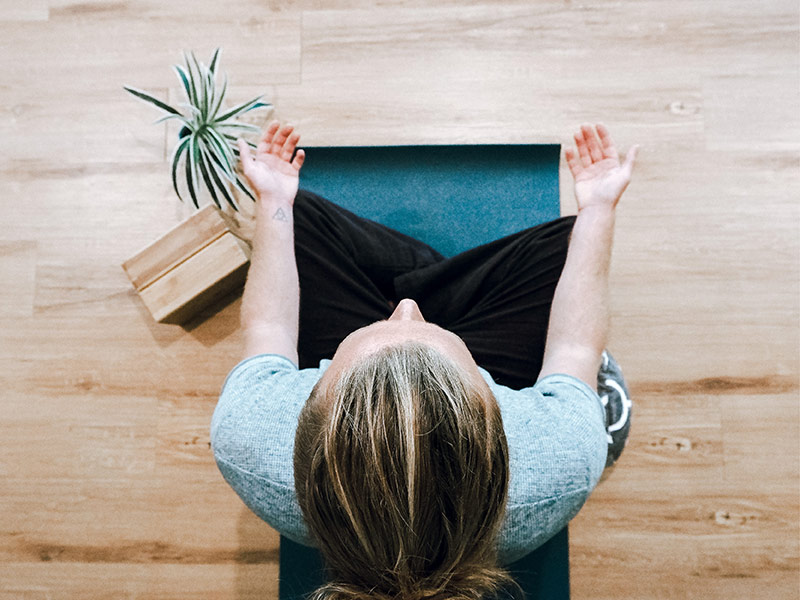Articles Tag: Healthy Life
When we talk about health in our everyday lives, we usually only refer to what we can see; the health of our physical bodies. A lot of importance is given to taking care of and beautifying our bodies. We do this by eating healthy foods, getting sufficient sleep, exercising, seeking treatment for illnesses, using hair and skin products and through several other activities.
Is physical health the only part of health? What are the other components of health? What does it really mean to be completely healthy?
To be completely healthy means to have a healthy body, mind, emotions and relationships. All of these types of healthcare connected, which means that if one is affected, then the others will also be affected. This means that if we neglect some part of our health, the other parts will also be badly affected, preventing us from being completely healthy.
So how do we know whether we are living a healthy life? We can learn more about the different types of health and understand how they affect us. To learn more, select an option below:
Mental health is the state of our mind. We use our mind to think, concentrate and make day to day decisions. Everything that we do is influenced by our mental health. If we have a healthy mind then we will be able to function well but if our mind is unhealthy, then it negatively affects our functioning.
Various organs in our bodies play unique roles to keep us alive. For example, the heart pumps blood, the liver removes toxins and the kidney controls the water level of our body. The brain is the most important organ, since it is the control center of the body, and it is linked with our mind.
Our brain is a special organ because it is continuously changing in response to our emotions, thoughts and life experiences. This is called neuroplasticity; ‘neuro’ meaning brain and ‘plasticity’ meaning the capacity to change. This means that small changes happen in the physical and chemical structure of our brain as we move through life. For example, when we start to learn playing the guitar, we initially aren’t very good at it, but if we keep on practicing, we slowly improve. This is due to changes which are occurring in our brain to help us learn to play the guitar. This is how we learn through experience.
Everything that we experience, from the day we are born to the present moment, influences the development of our brain and our mind.
So what happens if we don’t take care of our mental health? To learn more visit the distress section.
How are you feeling? Happy? Sad? Excited? Angry? What are emotions and why do we experience them?
Emotions are our internal responses to life events. Different kinds of events produce different emotions and it is possible to experience a range of emotions at the same time. Some emotions that we feel can be pleasant to experience (happiness, gratitude, awe, contentment, excitement) while others can feel unpleasant (anger, sadness, jealousy, fear, guilt, shame). However, regardless of whether an emotion feels pleasant or unpleasant, it is normal and important to experience all possible emotions.
Why is it important to pay attention to unpleasant emotions? Why can’t we just ignore them and hope they go away?
This is because life is full of challenges and unpleasant emotions arise to tell us there is problem that deserves our attention. If we are to ignore unpleasant emotions, then we won’t be able to understand what is causing them. Just like not treating a physical wound makes it worse, not dealing with unpleasant emotions may make the problem worse and more difficult to solve later on.
So what does it mean to have healthy emotions?
To have healthy emotions is to be able to experience emotions appropriately and regulate them effectively. For example, “Rafeh feels disappointed after failing an exam but is able to deal with the unpleasant emotions and work hard for the next one.” Signs of unhealthy emotions include feeling overwhelmed by our emotions or suppressing them. For example, “Rafeh is overwhelmed by disappointment after failing an exam and is unable to focus on the next ones.”
So do you feel that you are able to experience emotions appropriately and regulate them effectively? Do you think you have healthy emotions? What happens if you don’t look after your emotions?
To learn more, visit the distress section.
How do our relationships affect our health? Why do we need to have healthy relationships?
It may be strange to hear about the connection between our health and our relationships. However, it is commonly known that one of the most important factors for a healthy and happy life is the quality of our relationships. People who have fulfilling relationships find life more meaningful and are more likely to look after their own health. Perhaps that is why having healthy relationships is considered to be one of the most important aspects of health.
So why do we need relationships? We need them to feel:
- Valued and cared for
- Understood and accepted
- A sense of belonging
If we have healthy relationships, then it means that our relationships make us feel all of the above. If our relationships are unhealthy, then it means that they don’t make us feel this way. What happens if our relationships are unhealthy? For more information, visit the distress section.
Do you feel satisfied by the quality of your relationships? How can you improve your relationships? For more information visit the improving relationships section.
To have a healthy body means to be free from disease and be well enough to complete our daily tasks. Since all the parts of health are linked together, poor physical health will negatively affect the health of our mind, emotions and relationships.
Are you satisfied with your physical health? Do you think you are physically healthy enough to achieve what you want? How can you cultivate good physical health?
Some activities to maintain good physical health include having a proper sleep/wake cycle, doing regular exercise, maintaining a healthy diet and ensuring we have a healthy mind, emotions and relationships.
But how does doing all this protect us against illness? When you become ill, what makes you well again? The answer is immunity! Our immunity protects us and helps us to recover from physical illness. If we don’t look after our physical health our immunity becomes weaker and we are more likely to become ill. So aside from physical illnesses, what else can having an unhealthy body cause? To learn more visit the distress section.
Keywords / Tags
- Anxiety|Depression
- Anxiety|Mental Illness
- Caring for Sufferers
- Communication Skills
- Depression|Mental Illness
- Distress
- Distress|Grief and Loss
- Distress|Healthy Parenting
- Distress|Relationship Problems
- Empathetic Listening
- Healthy Life
- Healthy Parenting
- Managing Distress
- Mental Illness
- Relationship Problems
- Self Care
- Understanding Therapy
- Work/School Life Balance





